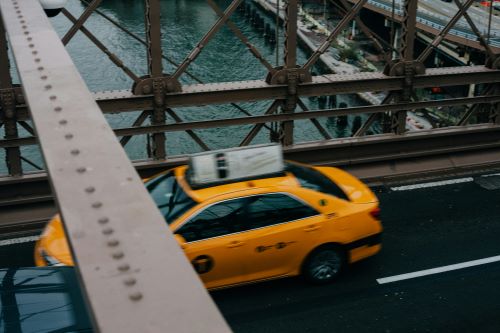Summary | Excerpt | Reviews | Beyond the Book | Read-Alikes | Genres & Themes | Author Bio

A Novel
by Dinaw MengestuThis article relates to Someone Like Us
 Abdul Saleh was fifty-nine when he died at home in Brooklyn in 2018 after working as a cab driver for thirty years. His roommate found him hanging from an electrical cord. His shifts had lasted as long as twelve hours but financial difficulties plagued him. It was hard to stay afloat in the era of Uber, Lyft, and rideshare companies that diluted demand.
Abdul Saleh was fifty-nine when he died at home in Brooklyn in 2018 after working as a cab driver for thirty years. His roommate found him hanging from an electrical cord. His shifts had lasted as long as twelve hours but financial difficulties plagued him. It was hard to stay afloat in the era of Uber, Lyft, and rideshare companies that diluted demand.
The executive director of the New York Taxi Workers Alliance (NYTWA), Bhairavi Desai, summed up the situation bluntly: "This is what he knew. This was his job. This is how he knew to earn a living for himself and his family overseas in Yemen. Your days are spent hearing about your family in the middle of such a devastating war and you have little means to financially support them."
The same year, Yu Mein Chow, who everyone called Kenny, jumped into the East River. He was fifty-six years old and was struggling to pay off a $700,000 debt — a mortgage on his medallion, the permit that allows drivers to operate their vehicles as taxis. His brother said Kenny had lost all hope, and stated, "NYC has to act as soon as possible on bringing fairness and a level playing field to the taxi industry."
The immigrant community is over-represented in car transportation, data shows. Thirty-eight percent of taxi and limo drivers were immigrants in 2000, making up the third-highest immigrant population of any occupation, with only tailors and farm laborers including a higher percentage. In the New York metro area, 82% of cab drivers were foreign-born. In the metro areas of Chicago and Washington, DC, where Dinaw Mengestu's novel Somone Like Us is set, 57% to 62% were immigrants. Many drivers are from South Asia, the West Indies, and Africa.
Someone Like Us reflects on a taxi driver named Samuel, an Ethiopian immigrant trying to achieve his dream of owning a fleet of taxis. Although ridesharing isn't specifically mentioned as a factor, financial insolvency puts a dent in his plan of American exceptionalism.
Samuel is sensitive to those like him and it isn't unusual for him to give someone necessary transportation to help keep them from being deported: "Samuel began to describe his plan of building a business that stretched from DC to California, one that operated by word of mouth and that catered exclusively to people like the woman he drove to Boston—immigrants, migrants, refugees, anyone who was in the wrong place and needed to be somewhere else but didn't know how to get there."
After Samuel's suicide, Mamush, who knew Samuel was his father but never treated him as such, remembers the older man telling him, "When someone died in this country it used to be a big deal. Ethiopians from all over would come, even if they didn't know the person. Now when I die, it will be like everyone else. I'm one of a million cabdrivers in this country who speak with an accent. For a long time, I thought there would be more to it than that, but we came to this country too late in our lives."
"I was wrong. This is not the end," Samuel wrote before his death, referring to the opportunity that still awaited Mamush. His wife and son. His career. Perhaps he thought it was not the end because Mamush's life could still center around hope.
Taxi crossing the Brooklyn Bridge
Photo by Brandon Day via Unsplash
Filed under Society and Politics
![]() This article relates to Someone Like Us.
It first ran in the July 31, 2024
issue of BookBrowse Recommends.
This article relates to Someone Like Us.
It first ran in the July 31, 2024
issue of BookBrowse Recommends.
Your guide toexceptional books
BookBrowse seeks out and recommends the best in contemporary fiction and nonfiction—books that not only engage and entertain but also deepen our understanding of ourselves and the world around us.